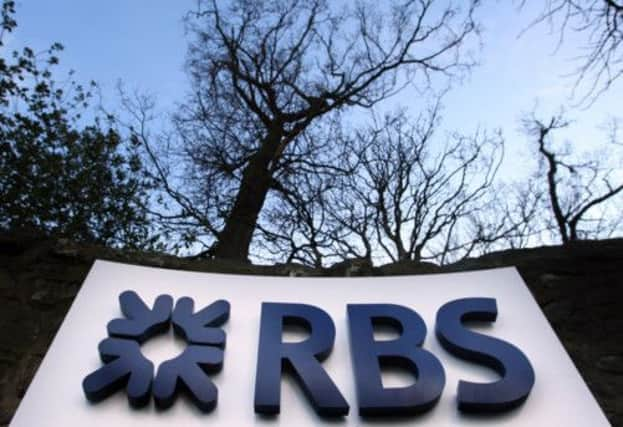Leaders: Banks’ good news offers hope to us all


Coupled with the profit announced by Lloyds the previous day, it looks to be welcome confirmation that the banks in which the taxpayer now has a major stake are returning to business health after the years of re-engineering they have undergone to pull them out of the hole into which they fell five years ago and which necessitated the state bail-out.
Analysts, those people paid to look at company results and assess what they mean for the future profitability of the company concerned, thought RBS’ figures were unimpressive. And it is the case that profits at RBS’ core business, the bits the company wants to keep and build, were down.
Advertisement
Hide AdAdvertisement
Hide AdThe incoming chief executive, Ross McEwan, due to complete and build on the impressive jobs that Stephen Hester has done, appears to have his eye firmly on these core activities. Recruited by Mr Hester from the Commonwealth Bank of Australia less than a year ago, he has already moved to make questions about his bonus a non-issue.
And rather encouragingly, some of his initial comments on joining RBS as head of retail banking suggest that he thinks the bank has a long way to go before it is offering a five-star service to its customers, who will certainly be grateful for improvements. He has made a strong entrance and sent all the right signals with his action on his bonus.
He has the good fortune to be taking over when the clouds that have shrouded the economy over the past few years seem to be lifting and clearing, not just in Britain, but in Europe as well. Yesterday came statistics saying that European manufacturing has expanded for the first time in nearly two years. Following a drop in European unemployment earlier this week, it prompted European Central Bank president Mario Draghi, to say that he thinks that a European recovery is under way.
There is still a long way to go, and there may be some bumps in the road yet, but the overall prospect is that Europe’s and Britain’s economies are growing more solidly than they have done since the crisis first struck. Banks, as the main source of finance for expansion, have a critical role to play in this, and if they are becoming healthier, it should mean that they have more money to lend.
The banks’ turnaround is also good news for taxpayers as it brings the prospect of the government being able to sell its shareholding in them a lot closer. Such a sale would cut a big slice from the pile of public debt their failure caused to be built up.
None of this, however, should distract attention to get on with banking regulatory reforms to make sure these disasters don’t happen again.
Go forth and enjoy the fun
Welcome, one and all, whether performer, artist, actor, writer, musician, or just someone here to enjoy perhaps a few days or even the full three weeks of the collection of festivals – official, fringe, visual arts, Tattoo, comedy, book, etc – that collectively make up the world’s greatest arts festival.
True, you may hear a few grumbles from Edinburgh’s permanent residents about the traffic jams, the difficulties of getting taxis or restaurant tables, the crowds on the pavements making shopping difficult, but apart from a bit of polite listening, don’t pay too much attention to them.
Advertisement
Hide AdAdvertisement
Hide AdThe majority of Edinburgh’s citizens enjoy having the festivals here. They even make up a big chunk of the audiences, even if some of them only make an effort to catch a free viewing of street theatre or some of the firework shows. But many Scots travel to see the world’s finest cultural events, some very big stars – and some wannabe stars – and just to drink in the atmosphere and the sights.
There is also the challenging and the dangerous, the bizarre and the unexpected, and, if playwright Mark Ravenhill, giving the first Fringe lecture, is right, this might be the first year that the Fringe might start to really stretch the boundaries. The paradox of performing at the Fringe, which is meant to showcase the experimental, the risky, and the cutting edge from outside mainstream art, is that it is expensive and often necessitates seeking sponsorship. Public and private funding for this, which can discourage, shall we say, the more inventive art, is drying up. So perhaps that, odd though it sounds, may be liberating. We encourage our readers to go and find out.